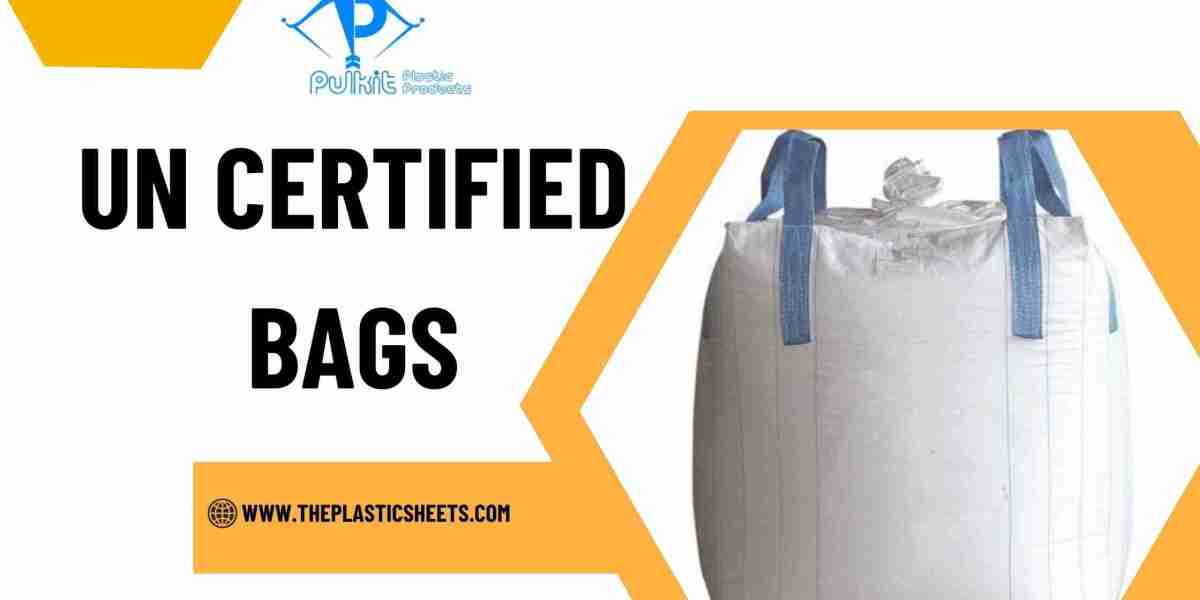In an increasingly globalized world where trade and transport are critical components of business, the importance of safety and reliability in packaging cannot be overstated. For companies dealing with hazardous materials, compliant and certified packaging is paramount to ensuring safety during transportation and storage. UN certified bags, specifically developed for the transport of dangerous goods, provide a benchmark of reliability that meets international regulations. This article delves into the essentials of UN certified bags, touching upon safety, standards, sustainability, and key suppliers such as Pulkit Plastic Products.
What is UN Certification?
UN certification refers to a standard established by the United Nations Economic Commission for Europe (UNECE) that governs the packaging of hazardous materials. This certification ensures that the packaging can withstand rigorous testing and demonstrate its reliability in protecting contents during transport. The standards established under the UN certification process include various types of tests that assess factors like impact resistance, drop tests, and environmental conditions, ensuring that the packaging remains intact despite challenges it may face.
Why UN Certified Packaging Is Essential
Safety: The primary goal of UN certified bags is to ensure the safe transport of hazardous materials. These bags are designed to prevent leaks, spills, or any other accidental release of harmful substances that could endanger human health and the environment.
Legal Compliance: Many countries and regions impose strict regulations regarding the transport of hazardous materials. Using UN certified transport bags helps companies comply with these regulations, thereby avoiding costly fines and liability issues.
Reputation Management: Companies that demonstrate a commitment to safety and compliance in their packaging processes enhance their reputation. This is particularly crucial in industries where trust is paramount.
Environmental Responsibility: Sustainable packaging is increasingly becoming a focus for businesses worldwide. UN certified bags can be designed using environmentally friendly materials, aligning with global sustainability goals.
UN Certified Packaging Standards
For UN certified packaging standards are categorized by risk class, and each class has its unique packaging requirements. These classes include:
- Class 1: Explosives
- Class 2: Gases
- Class 3: Flammable Liquids
- Class 4: Flammable Solids
- Class 5: Oxidizing Substances and Organic Peroxides
- Class 6: Toxic and Infectious Substances
- Class 7: Radioactive Materials
- Class 8: Corrosives
- Class 9: Miscellaneous Dangerous Goods
Each category has its advanced testing procedures to ensure that the integrity of the packaging corresponds to the nature of the material being transported. Compliance with these standards is critical for any business that handles hazardous materials.
Sustainability in UN Certified Packaging
As consumers and businesses alike become more environmentally conscious, there’s an increasing demand for sustainable packaging solutions, even in UN certified bags. Packaging suppliers are increasingly focusing on creating robust, yet environmentally friendly materials, utilizing recyclable plastics or biodegradable alternatives. This endeavor does not only fulfill regulatory standards but also aligns with the corporate social responsibility goals that many businesses are adopting today.
The Role of Suppliers
Selecting the right supplier who specializes in UN rated packaging is equally critical. One notable supplier in this field is Pulkit Plastic Products, which has built a reputation for offering high-quality, reliable, and UN certified transport bags. Their extensive range of products ensures that a business, regardless of its specific needs, can find suitable packaging solutions while adhering to safety standards.
Pulkit Plastic Products follows stringent manufacturing processes to ensure that their packaging complies with UN certification. They are committed to continuous improvement and stay up to date with the evolving regulatory landscape for hazardous materials transport. This commitment ensures that businesses can rely on their products to safely transport their goods.
Conclusion
UN certified bags are an indispensable part of the global supply chain for hazardous materials. They symbolize a commitment to safety, compliance, and sustainability, all while providing peace of mind for companies engaged in the transport of dangerous goods. Working with reliable UN rated packaging suppliers like Pulkit Plastic Products ensures that businesses can meet the necessary standards while fostering a sustainable approach to packaging. In a world where safety and environmental practices are increasingly scrutinized, investing in UN certified transport bags is not just a regulatory requirement—it’s a step toward a more responsible business model.
FAQs
1. What are UN certified transport bags?
UN certified transport bags are specifically designed for the safe transportation of hazardous materials. They meet the stringent standards set by the United Nations, ensuring that they can withstand environmental and mechanical stressors during transit.
2. How can I ensure my packaging is UN certified?
To ensure your packaging is UN certified, you should source materials from suppliers who provide documentation proving their compliance with the appropriate UN packaging tests and standards. Look for reputable suppliers like Pulkit Plastic Products who specialize in UN rated packaging.
3. What are the key benefits of using UN certified packaging?
The key benefits include enhanced safety for people and the environment, compliance with international and local regulations, risk reduction in the transportation process, and boosted corporate reputation regarding safety and responsibility.
4. Are UN certified bags environmentally friendly?
While UN certified bags primarily focus on safety and compliance, many suppliers are increasingly introducing sustainable options made from recyclable or biodegradable materials, supporting the movement towards environmental responsibility.
5. Can I use non-certified bags for transporting hazardous materials?
Using non-certified bags for transporting hazardous materials is highly discouraged. Doing so not only poses legal risks but also endangers human life and the environment, possibly resulting in severe consequences.








